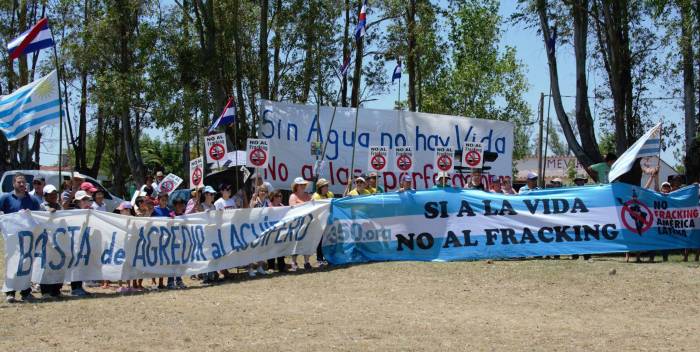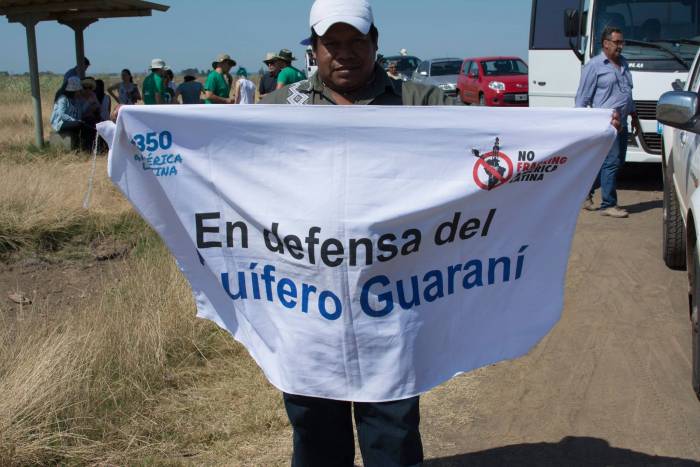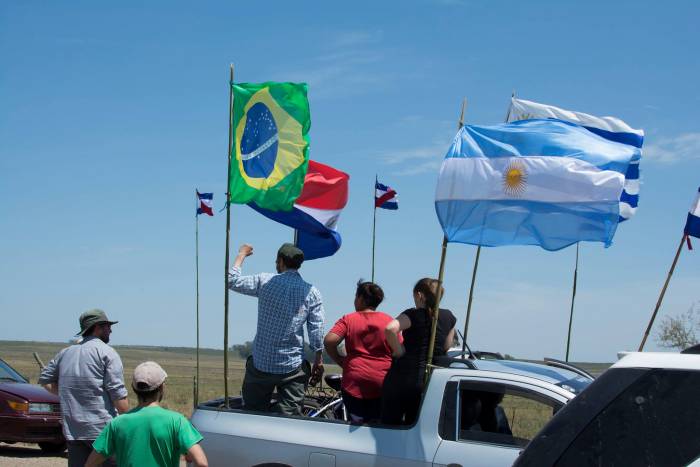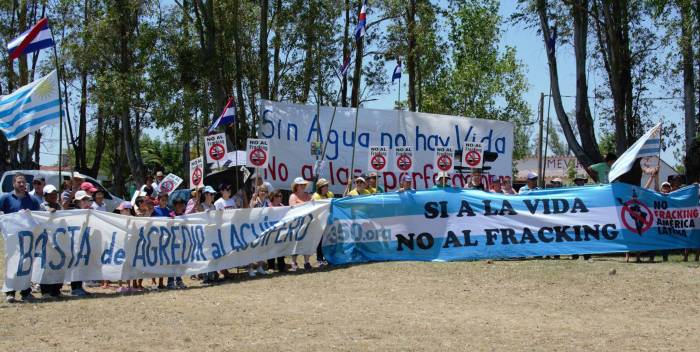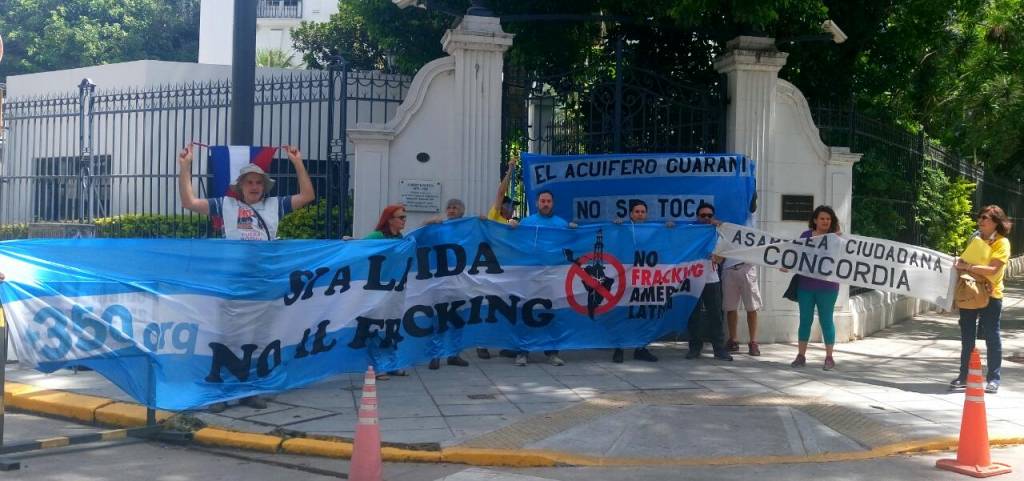
Two days after several organizations from Uruguay, Argentina, Brazil and Paraguay held the second Great March in Defense of the Guaraní Aquifer, and read a proclamation in the community of Palomas, Uruguay; the Australian company Petrel Energy announced the suspension of drilling activities in the Cerro de Chaga well.
The company made this announcement on December 11th at the Australian Stock Exchange, citing “instability in a geological fault”. “Petrel Energy Limited announces that Schuepbach Energy Uruguay has temporarily suspended operations at the Cerro de Chaga-1 well to review operations and strategy during the Christmas and New Year’s leave” (…) The Managing Director, Mr. David Casey, also said that “Although it is somewhat disappointing after the results of the Cerro Padilla-1 well, and given the good progress of the basalt drilling before finding this fault, we can not forget that we are drilling in a border area that has its challenges,” said the statement.
“What the Manager of Petrel Energy seems to ignore is that this type of inconvenience in drilling is happening on one of the most important freshwater reservoirs in the world – the Guarani Aquifer – and that his company of Australian origin is using the technique of fracking, that is highly polluting, and prohibited among others in the state of Victoria of Australia, because it is considered harmful to human health, water, air and the environment,” said Juan Pablo Olsson, campaign coordinator of 350.org Latin America.
Facing the concerns about the potential contamination of the Guaraní Aquifer, environmental organizations from Uruguay, Argentina, Paraguay and Brazil, through a delegation headed by 350.org Latin America and the Civic Assembly of Concordia, Entre Ríos (Argentina), presented a Letter in Defense of the Guaraní Aquifer at the Embassy of Australia in Buenos Aires. They are deeply concerned about the potential contamination of the Guaraní Aquifer, and the letter explains the serious consequences of the advance of fracking on the Aquifer. The document was received by the Consul on behalf of Ambassador Noel D. Campbell.

“We wanted to inform the authorities of the Embassy, that the advance of the Australian oil company, using the technique of fracking – is transgressing an international treaty of protection of the Guaraní Aquifer, and can have serious consequences in the supply of drinking water for millions of humans in the region,” Olsson emphasized.
In Argentina there are six provinces that are upon the Aquifer: Entre Ríos, Corrientes, Misiones, Santa Fe, Chaco and Formosa. According to María de los Ángeles, member of the Citizens Assembly of Concordia, “both in Entre Ríos and in Santa Fe, fracking has been banned; in the south of Brazil there are more than 350 cities, in addition to the State of Paraná, where was made progress with prohibition ordinances; in Uruguay 5 Departments have already banned this practice, and in Paraguay we are articulating with environmental leaders to continue that path. We aim to strengthen a regional movement that says ‘No’ to fracking on the Guaraní Aquifer.”
From its part, a group of environmental organizations of Uruguay published a statement demanding the intervention of the National Environment Directorate for the suspension of drilling of the company Petrel Energy in the Department of Salto, Uruguay.
Photos from the International March to Defend the Guaraní Aquifer in Salto, Uruguay
From December 9,2017
Organized by the Salto Civil Environmentalist Association (ACAS) and the “Todas Las Manos” (All Hands) Environmental Coordinator under the slogan “No Water, No Life: No to Drilling into the Guaraní Aquifer,” the demonstration set out from the entrance point for the road to Palomas and Saucedo. It then passed the very spot where the Schuepbach Energy company plans to drill in search of hydrocarbons. Finally, it ended up in the town of Palomas, where Alexis Silva read their manifesto. Accompanied by the flags of the four countries and the organizations present–in addition to the flag of Artigas, commemorating the emancipation of Uruguay–the demonstration was also attended by many residents from other areas and covered by several radio and TV channels, which were traveling with the caravan and closely following the debate over extraction techniques in Uruguay.
